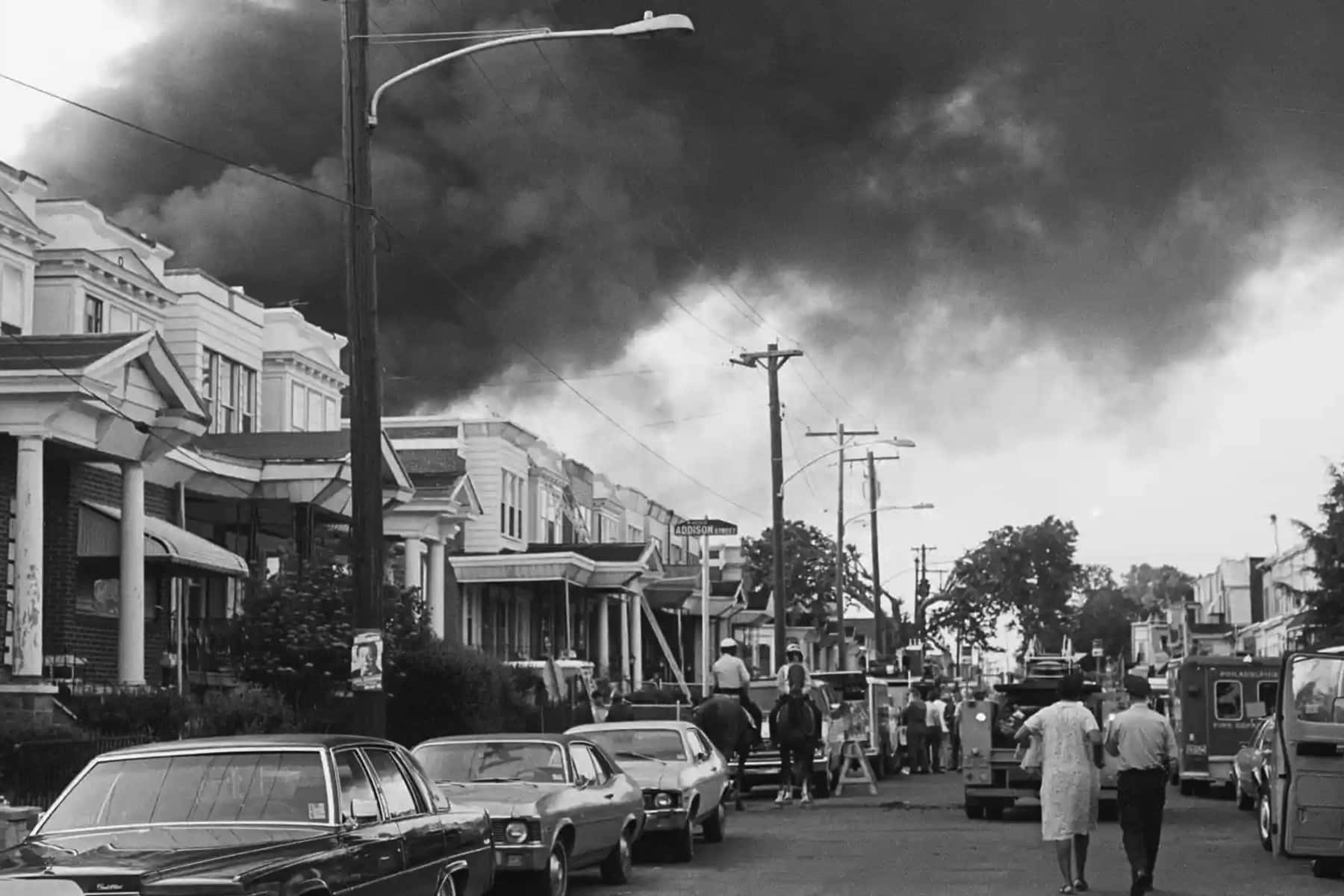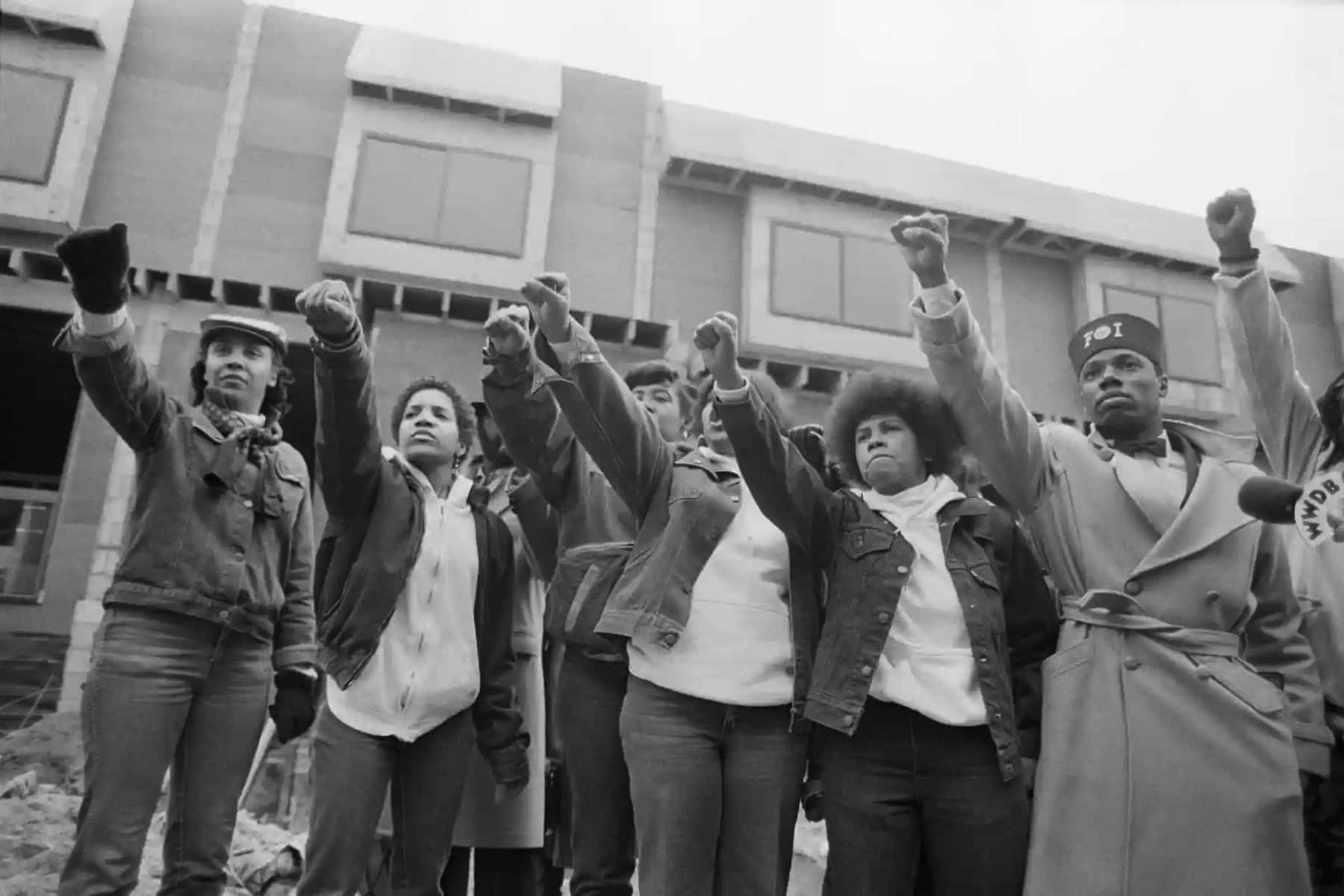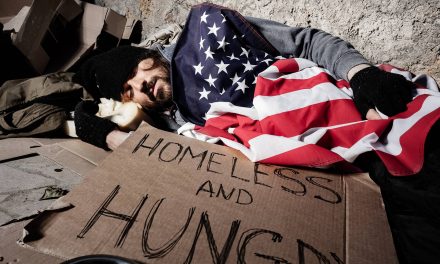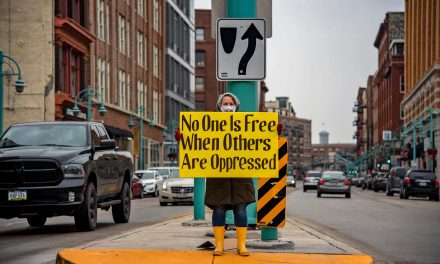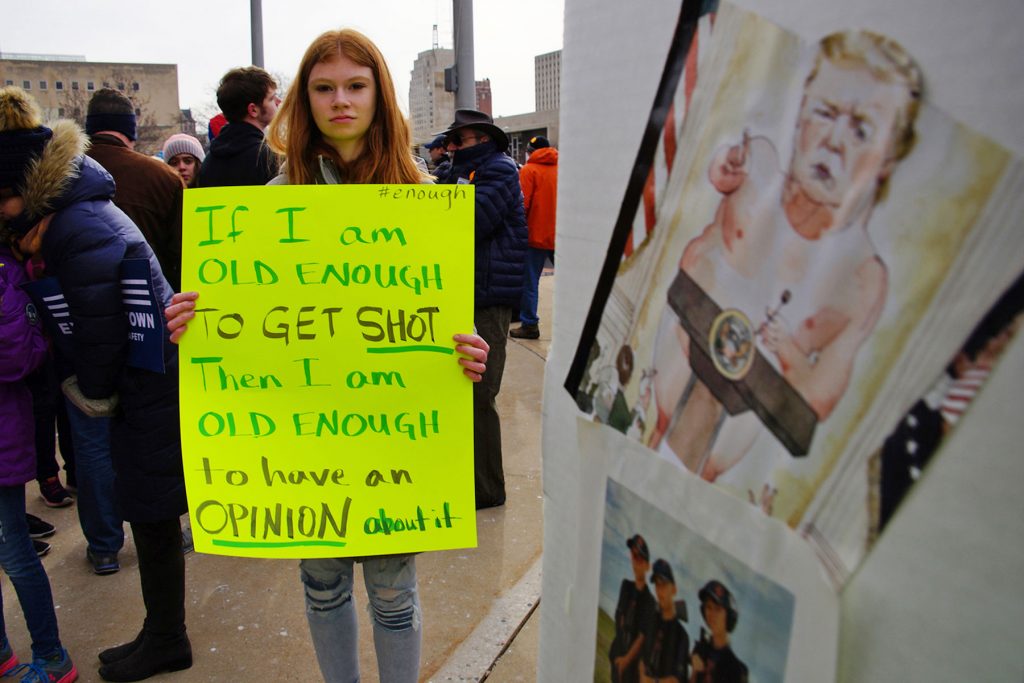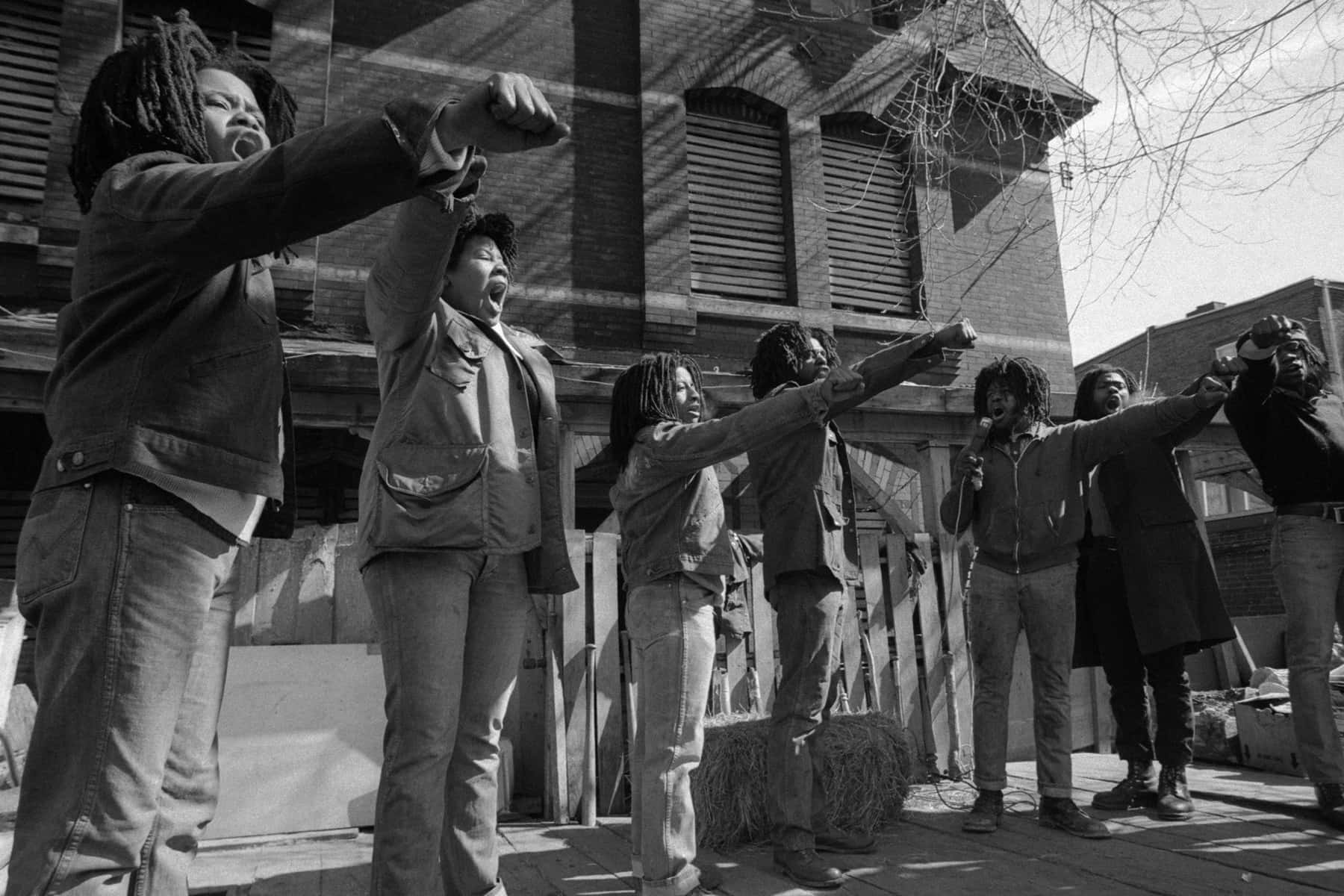
In the days ahead, Americans will hear the ugly details of the most infamous anti-black race riot in the nation’s history. The Tulsa Race Massacre, which will have its 100th anniversary commemorated on May 31, was the first case of an American city being bombed from the air. Most have never heard of the second case of a mainland American city being bombed from the air. It occurred in May 1985 in Philadelphia. An organization of Blacks called MOVE, who wanted to have nothing to do with the America that existed in Philadelphia at that time, had their compound bombed by Philadelphia police officials. The story is complicated and requires a telling of the backstory. These two articles tell the backstory and illuminates the events of May 13, 1985 when the bomb was dropped on their home, killing eleven members of MOVE including five children.
“If you think that this white racist society will shoot down those white students at Kent State, you think they’ll hesitate shooting down any black, Puerto Rican, or Chicano brothers here in Philadelphia? No. How many times did you pick up the paper and read about another Puerto Rican, another Mexican, another black man shot in cold blood because some cop said, ‘I thought I saw a piece of shiny metal. I thought he’d shoot me.’” – a statement by MOVE, May 20, 1977
On May 13, 1985 one of the most brutal acts of police brutality in American history occurred and you’ve probably never heard of it. A police helicopter dropped a bomb onto the roof of the MOVE home during an armed standoff. The fire it started destroyed over 60 homes in West Philadelphia and killed six adults and five child members of MOVE.
The events of that day can only be clearly understood by looking back at the history of MOVE, a Philadelphia based group described by a journalist as “a strange fusion of Black Power and Flower Power” and their fraught relationship with the Philadelphia Police Department. From 1972 until 1978 over one hundred-fifty people had been shot and killed by police in Philadelphia and more than half of them were unarmed. When Philadelphia Mayor Frank Rizzo, the former police commissioner, was asked, “Isn’t this a rather high incidence of unarmed people being killed by policemen?” he responded by saying the following.
“No I don’t think so… We have to decide who should be more aggressive, the police or the criminal element. I’m on the side of the police every time… If the police department in Philadelphia was not aggressive, I would fire the Police Commissioner.”
A long history of police brutality and police officers, sometimes on duty, sometimes off duty, beating and killing civilians was constantly on the news in Philadelphia in the 1960s and 70s.
“When you cannot reach out to the officials and get justice. When you cannot get justice from anybody in the city. What do you do, and where do you go? Everybody has a saturation point that they reach sometimes in their lives where you just can’t take anymore.” – Louise James
On March 28, 1976, seven MOVE members, who had been arrested trying to prevent the eviction of one of their members, Devita Africa, returned home. They were celebrating the release of the seven when police attacked the group. Janine Africa was holding her three-week-old baby, ironically named Life, in her arms. Her husband Phil was nearby. Police with billy clubs knocked her to the ground crushing the baby’s skull. Police and city officials initially claimed the baby never existed. MOVE members made sure that all children were born at home and there was no birth certificate issued for the child. Nothing was ever done to the police officers involved in the death of Life.
“I was thrown to the ground. I was stepped on several times by cops.” – Janine Africa
The group MOVE had been founded by John Africa in 1972. MOVE is not an acronym, it simply means to move. The MOVE website describes their belief system.
“MOVE is a family of strong, serious, deeply committed revolutionaries founded by a wise, perceptive, strategically-minded Black man named JOHN AFRICA… JOHN AFRICA taught us that Life is the priority… We believe in Natural Law, the government of self. Man-made laws are not really laws, because they don’t apply equally to everyone and they contain exceptions and loopholes. Man-made laws are constantly being amended or repealed…All living things instinctively defend themselves. This is a God-given right of all life…The fact that something is legal under the system’s laws, doesn’t make it right. Slavery was legal. Killing Native Americans and stealing their land was all done legally… We don’t believe in this reform world system – the government, the military, industry and big business. They have historically abused, raped and bartered life for the sake of money. These rulers and policymakers don’t care who they kill, enslave, cripple, poison or disease in their quest for money. They have made material wealth a priority over life…a revolution to stop man’s system from imposing on life, to stop industry from poisoning the air, water, and soil and to put an end to the enslavement of all life. Our work is to show people how rotten and enslaving this system is and that the system is the cause of homelessness, unemployment, drug addiction, alcoholism, racism, domestic abuse, AIDS, crime, war, all the problems of the world…”
After the death of Life, MOVE fortified their home by boarding up their windows and building a wall around their home. They also began to talk about the police department and its harassment of the group by standing on the corner outside their home with a bullhorn. They said openly that they would no longer suffer harassment and beatings without defending themselves from the police.
“If the police come in here with their hands we’ll use our hands. If they come in with clubs, we’ll use clubs. But if they come in here shooting and killing our women and children and our men we will shoot back in defense of our lives.” – Delbert Africa
A March 6, 1978 article in the Philadelphia Daily News described MOVE as “the ticking bomb.” Neighbors complained about the noise from the bullhorn as well as saying the home and yard were filthy.
Mayor Rizzo and other city leaders decided to “blockade” the MOVE residence and cut off their utilities on March 8, 1978. Local media described it as an effort to “starve the group out of its West Philadelphia house.” It was cold and light snow was falling that day. The police barricaded the street, making sure that no water or food could get into the house for 56 straight days. Hundreds of police officers including SWAT teams were set up around the home.
A month later, the water and food they had on hand ran out. The city sent food in saying it was only for the three nursing mothers and six children but not for the other adults. MOVE refused the food saying, “How can you feed the children and not the parents?”
Community leaders began to put a team together to pressure the mayor to end the blockade, bringing in national figures like Dick Gregory. The story became an international story with people around the world calling for humane treatment of the MOVE community, including Amnesty International which decried the barricade.
Police entered the compound, saying they were searching for underground tunnels, bombs and weapons. They found no illegal weapons, bombs or tunnels. All of the legally owned weapons found were inoperable. MOVE demanded that their members who were still incarcerated be released from custody and they would accept the food. Eventually the city complied.
After the crisis ended, community leaders put a ninety day truce in place to lower the tension in the neighborhood. It worked well and MOVE took down the walls around the home. City Solicitor Sheldon Albert said, “On the ninety first day we intend to tear down those two buildings.” Rizzo spoke to the media and said, “What they need is a good bath and some soap and water in their mouth… their going to go either the easy or hard way, that can be standing up or laying down” as white citizens supporting him applauded in the background.
On August 2, Solicitor Albert ordered MOVE residents out of the home. Rizzo said to local media, “The police will be in there to drag them out by the backs of their necks… no barricades Mike. Their going to be taken by force if they resist. No question about that, children or not.”
On August 8, the police brought in armored vehicles, bulldozers and busloads of officers. They forced the media and hundreds of community members to disperse very late that night. Over 600 heavily armed officers, many in riot gear, surrounded the house. Around 6:00 a.m. a bulldozer was used to tear down the fence around the compound. Later a hydraulic ram busted holes in the side of one of the homes.
Police, including bomb squad members in protective suits, went into that home. The police drilled through the floors to gain access to the rest of the house. Armed with Thompson machine guns, dozens of officers were stationed near the basement of the second home. Firemen started to spray high powered water hoses into the basement of the house instead of tear gas to supposedly protect the babies eyes.
Shots were fired, and a gun battle ensued. On the video shown in the HBO documentary, 40 Years a Prisoner, you can clearly hear machine guns being fired and see officials waving their arms to tell the officers to stop firing. Chuckie Africa was shot as he exited the house. All the while, as shots were being fired, the water hoses continued to spray water into the basement. The firemen never moved away from their positions.
The police started to fire the submachine guns into the house. They eventually stopped firing and MOVE members started to shoot from the basement. Officer Bill Stuart was shot in the back of the neck as he ran away from the house, falling on top of the fire hoses. Several other officers were shot. Officer James J. Ramp was killed by a shot to the chest. There are some in Philadelphia who believe the officer was killed by friendly fire because evidence at the trials showed he was shot from behind which meant it was impossible for the people in the MOVE home to have shot him.
Eventually the police teargassed the basement and MOVE members came out of the house. Delbert Africa was beaten with billy clubs and kicked and stomped in the head and torso by a group of three police officers. He was hospitalized with severe injuries including a broken cheekbone and badly injured eye from the beating which was filmed and photographed by media members.
Years later he described what he remembered of the beating. “A cop hit me with his helmet, smashed my eye. Another cop swung his shotgun and broke my jaw. I went down, and after that I don’t remember anything ’til I came to and a dude was dragging me by my hair and cops started kicking me in the head.”
The video of his brutal beating led to denial of excessive force by the mayor, district attorney and police commissioner but massive protests by the Black community. District Attorney Ed Rendell had the audacity to claim that the footage did not depict the true story of what happened. He was eventually pressured to file charges against the three officers. On August 6 a large crowd of thousands of Whites chanting, “I wear blue, take me too” gathered outside the courthouse. It is eerily similar to protests last year where Whites chanted “We back the blue.”
During the trial, Police Commissioner Joseph O’Neill testified, “Delbert Africa wasn’t a man, he was a savage. When you’re dealing with a savage, you don’t know what he may do.” Judge Stanley Kubacki dismissed the criminal charges against the officers before the trial was completed, not letting the jury make a decision.
Mayor Rizzo ordered the bulldozers to tear down the building immediately, destroying evidence of the crime scene.
“Get that death penalty back and put them into the electric chair and I’ll pull the switch. That’s when I’m sure they’ll not be around (Applause)” – Frank Rizzo, Mayor of Philadelphia
Nine members from Move, Eddie Africa, Janet Africa, Janine Africa, Mike Africa, Debbie Africa, Delbert Africa, Chuck Africa, Phil Africa and Merle Africa were charged with killing Officer Ramp. They refused to have a jury and would not cooperate with the court appointed attorney. The group of them became known as the MOVE 9. They were all found guilty of murder in the third degree and sentenced to 30 to 100 years in prison by Judge Edwin Malmed.
Eventually in 2018, Debbie Africa became the first to be released from prison and later that year her husband Mike Africa was released. The following year Janet, Janine, Chuckie and Eddie were all released. Delbert was released in January 2020 and died six months later in June. Merle Africa died in prison in 1998, and Phil Africa died in prison at age 59 in 2015.
The long prison sentences handed down in 1978 would not be the end of the challenges MOVE would have. The years ahead would see more confrontations between MOVE and the police and neighbors and MOVE finding a new home to live in.
J. Scоtt Аpplеwhіtе, Pеtеr Mоrgаn, Lеіf Skооgfоrs, and Bеttmаnn Аrchіvе

